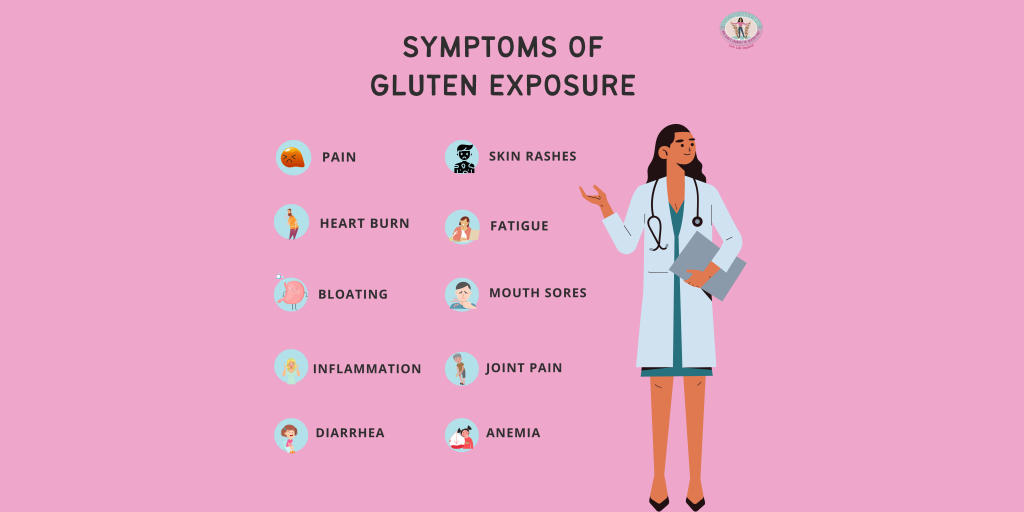A Growing Health Concern: Exploring the Rising Incidence of Celiac Disease

Hold on to your baguettes and put those pizzas on pause because we’ve got some breaking news about celiac disease! The number of people diagnosed with this sneaky gluten-related condition is skyrocketing faster than you can say “gluten-free.”
Celiac disease, an autoimmune disorder triggered by gluten, is no longer playing hide-and-seek with our digestive systems. It’s bursting onto the scene, affecting people from all corners of the globe.
But what’s behind this dramatic surge in celiac cases?
Today we’ll uncover the forces behind its rise and equip you with the knowledge to combat it. So get those rolling pins ready because we’re kneading answers!
A Quick Overview of Celiac Disease
Celiac disease is an autoimmune disorder characterized by an adverse immune response to gluten, a protein found in wheat, barley, and rye. In individuals with celiac disease, the consumption of gluten triggers an immune reaction that damages the lining of the small intestine, leading to various digestive symptoms and potential long-term complications. The primary treatment for celiac disease is a strict, lifelong gluten-free diet.
Symptoms of Celiac Disease
Since the symptoms of celiac disease can be vague and overlap with other conditions, it is often underdiagnosed or misdiagnosed. It’s crucial to be aware of the potential signs of celiac disease to seek appropriate medical evaluation and diagnosis.
- Abdominal pain
- Diarrhea or frequent bowel movements
- Bloating and gas
- Fatigue and weakness
- Weight loss or difficulty gaining weight
- Nutrient deficiencies
- Anemia
- Bone and joint pain
- Skin rash or dermatitis herpetiformis
- Mouth ulcers
- Nausea and vomiting
- Constipation
- Delayed growth or puberty
- Irritability or mood changes
- Infertility or recurrent miscarriages
Unveiling the Truth: Celiac Disease – Current Facts and Figures
- Celiac disease affects approximately 1 in every 100 people worldwide, but only 30% receive a proper diagnosis, leaving them at a higher risk of complications.
- A significant screening in Italy discovered that 1.6% of the population had celiac disease, while Finland found that 1.9% of the population was affected.
- The prevalence of celiac disease is increasing globally at a rate of 7.5% each year.
- Having a first-degree relative (parent, child, or sibling) with celiac disease increases an individual’s risk of developing the condition to 1 in 10. Celiac disease, like other autoimmune diseases, can be inherited.
- Some medical professionals attribute the rising number of patients with a genetic risk to factors such as fast food and pizza consumption.
How To Live With Celiac Disease
Get ready for the gluten-free adventure of a lifetime! From revamping your diet to finding support from a medical dream team and the celiac community, managing celiac disease is all about embracing the challenges with a smile.
The Gluten-Free Diet Delight
It’s time to bid farewell to wheat, barley, rye, and their sneaky derivatives. Embrace a diet filled with naturally gluten-free wonders like fruits, veggies, legumes, and unprocessed meats. Whip up gluten-free masterpieces with rice, quinoa, and corn, and explore the world of gluten-free products for your favorite goodies!
Nurturing Nutrient Superpowers
Defeating nutrient deficiencies like a true hero! Work alongside healthcare professionals to identify your specific nutrient needs and unleash the power of a balanced diet. Modify your food choices or enlist the help of supplements to ensure you’re getting all the vitamins and minerals your body craves.
Unleash the Medical Squad
Assemble your team of healthcare professionals to conquer celiac disease! Seek regular check-ups and support from dietitians or nutritionists who are champions in the gluten-free realm. Together, you’ll fine-tune your gluten-free diet and tackle any hurdles or nutrient imbalances that come your way.
Education: Your Secret Weapon
Become a gluten-free genius! Learn the art of safe food choices and become a master label reader. Unveil the mysteries of cross-contamination risks and master the art of gluten-free food preparation. Educate your loved ones about your gluten-free foods.
Find Support in the Celiac Community
Team up with fellow warriors! Connect with support groups and online communities who understand the gluten-free journey. Share your triumphs, challenges, and gluten-free recipes with like-minded individuals who can offer advice, encouragement, and a shoulder to lean on.
Embrace Your Mental Heroism
Conquering celiac disease is more than just physical strength. Face the emotional challenges head-on! Seek the support of counselors, therapists, or support groups to unleash your inner emotional superhero. Share your experiences, find coping strategies, and celebrate the victories along the gluten-free path.
Checkpoint Conquests
Stay ahead with regular check-ins and testing. Monitor the effectiveness of your gluten-free diet through blood tests and medical evaluations. Celebrate the progress of intestinal healing and symptom improvement. Tackle any hurdles or complications that may arise, armed with your knowledge and medical team by your side.
New Instructions on Celiac Disease
In addition to the above older instructions, doctors have added some new guidelines, including the diagnosis and diet.
- Confirming the presence of celiac disease requires upper gastrointestinal endoscopy with multiple duodenal biopsies in both children and adults.
- Celiacs should establish individualized goals for each patient, focusing on intestinal healing as the endpoint of gluten-free diet therapy.
- Gluten detection devices in food or biospecimens are not recommended to accurately assess gluten content.
- The use of probiotics for patients with celiac disease lacks sufficient evidence to strongly recommend its use at this time.
- Pneumococcal vaccination is important for preventing infection in individuals with celiac disease.
- Case finding is an effective approach for increasing the detection of celiac disease in clinical practice, while mass screening in the community is not recommended.
- For patients aged 2 years and younger, the preferred single test for celiac disease detection is immunoglobulin IgA anti-tissue transglutaminase (IgA anti-TTG), and testing in children with IgA deficiency should use IgG-based antibodies.
Wrapping Up
Celiac disease is a prevalent autoimmune condition affecting many individuals worldwide. Unfortunately, many cases go undiagnosed, increasing the risk of complications. The disease is on the rise globally, and having a family history of celiac disease amplifies the risk. Early detection, proper diagnosis, and adherence to a gluten-free lifestyle are crucial for effectively managing the condition and improving overall well-being. By increasing awareness and promoting timely intervention, we can strive for a future where every individual with celiac disease receives the support and care they need to lead a healthy, fulfilling life.
Good Read: Living Gluten-free: Top 20 Things Celiacs are Tired of Hearing
 MY JOURNEY
MY JOURNEY About Me
About Me Early life
Early life Diagnosis
Diagnosis CELIAC DISEASE
CELIAC DISEASE Symptoms & Diagnosis
Symptoms & Diagnosis Treatment & Follow Up
Treatment & Follow Up GLUTEN - FREE LIVING
GLUTEN - FREE LIVING At Home
At Home At School
At School At Social Events
At Social Events
 Grocery Shopping
Grocery Shopping COMMUNITY OUTREACH
COMMUNITY OUTREACH Gluten Free Meetup
Gluten Free Meetup Workshops
Workshops Webinars
Webinars COVID-19 Camps By Gluten Free Jio
COVID-19 Camps By Gluten Free Jio  Mid Day Meal
Mid Day Meal Beyond Celiac
Beyond Celiac Real Stories of Celiac
Real Stories of Celiac RESOURCES
RESOURCES Restaurant Dining Cards
Restaurant Dining Cards Recipes
Recipes Gluten Free eBook
Gluten Free eBook Gluten Free Jio App
Gluten Free Jio App RECOGNITION
RECOGNITION TRAVEL DIARY
TRAVEL DIARY




